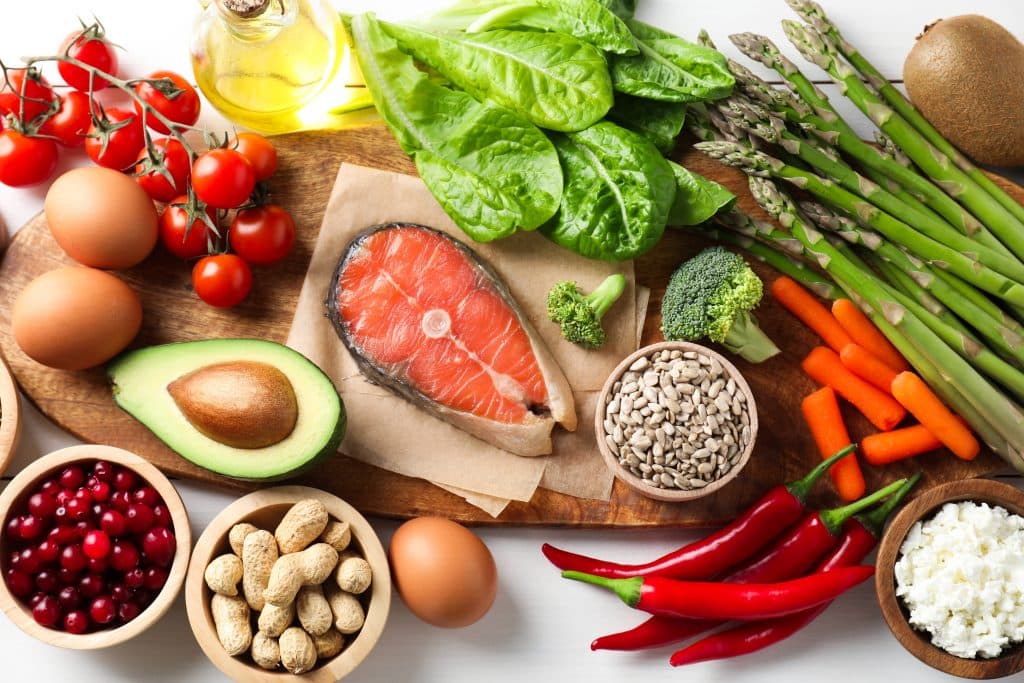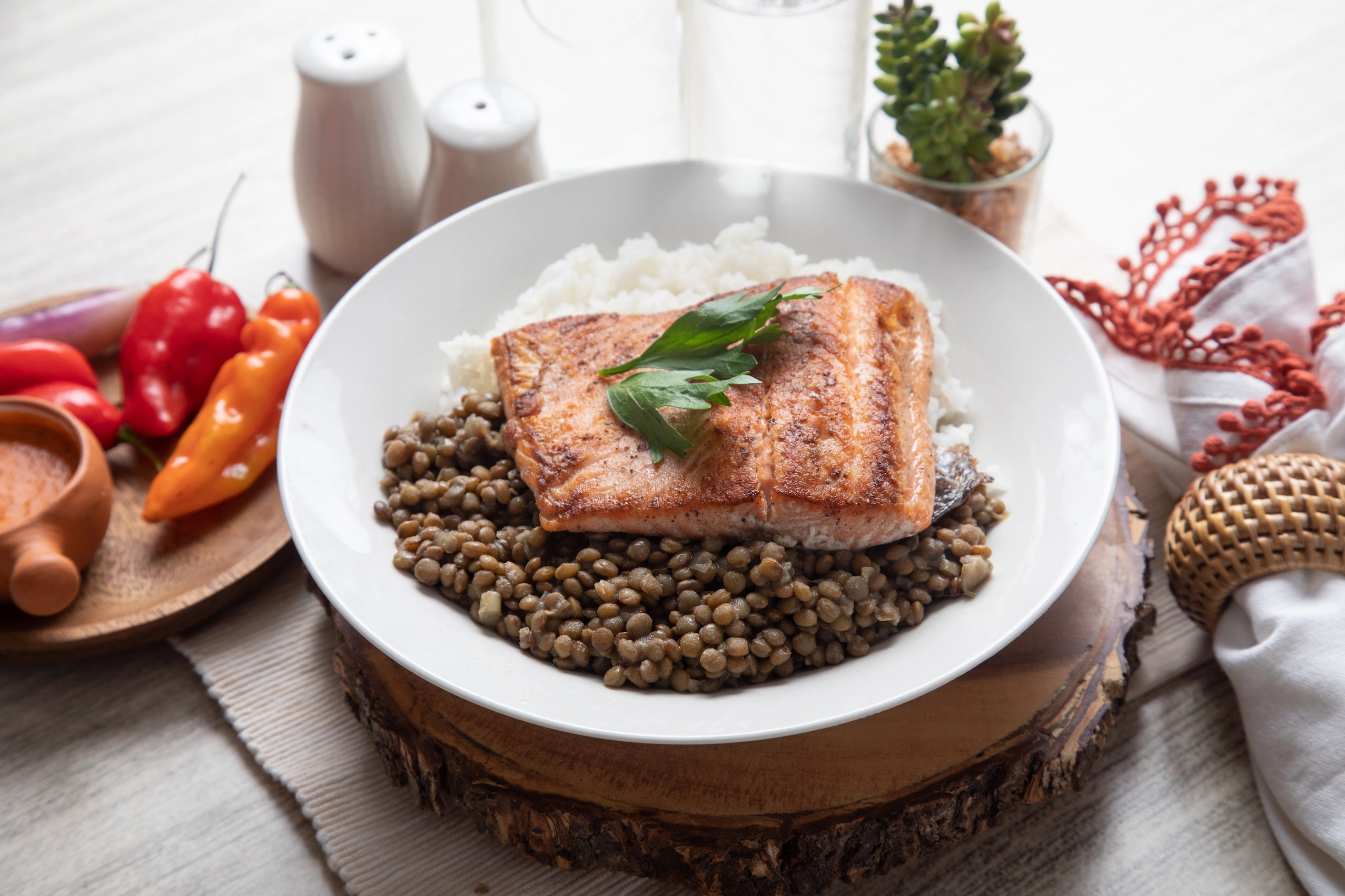Top 13 Foods That Help Manage ADHD Symptoms Naturally
ADHD makes focus unpredictable. One minute, you’re locked in, the next, you’re scrolling through ten tabs, forgetting why you opened them in the first place. The good news? What you eat can actually help. Certain foods support brain function, energy, and impulse control, making ADHD symptoms a little easier to deal with. The trick is to eat more of the foods that keep your brain steady and less of the ones that send it into chaos. These are the best foods to manage ADHD naturally.
Food That Actually Helps Your Brain Function
Fatty Fish
You know that fish is “good for you,” right? But do you know why? Salmon, mackerel, sardines, and trout are packed with omega-3s. These all help with memory, focus, and impulse control. Many people with ADHD don’t get enough of these, and that’s a problem because omega-3s basically keep your brain running smoothly.
Not a fan of fish? Fair enough. Try tinned sardines on toast or grilled salmon with garlic and lemon. If that still sounds awful, there are other ways to get omega-3s.
Unlock peak brain performance with science-backed biohacks. Join free now & get your guide for just £4.99 (45% off)!

Chia and Flaxseeds
Fish isn’t the only way to get brain-boosting fats. Chia and flaxseeds are small, but they pack a punch. They’re one of the easiest things to throw into meals because you won’t even notice they’re there.
Mix them into smoothies, yogurt, porridge, or even pancake batter. No effort required.
Eggs
Eggs are serious brain fuel. They help with dopamine production, keep energy steady, and support focus. If you start your day with just toast or sugary cereal, you’ll probably feel useless by mid-morning.
Scrambled, poached, boiled—whatever works. Just eat the yolk. That’s where all the good stuff is.
Pumpkin Seeds
Mmmm. Not just yummy but also packed with zinc and magnesium. If you ever feel easily overwhelmed or struggle to concentrate, those two minerals should do the trick.
Roasted with a bit of salt, or throw them into a salad for some crunch. Easy and next level delicious!
Nuts
We sure do go on about healthy fats and minerals, but here’s the reason: Cashews, almonds, walnuts are full of both and help keep dopamine levels where they should be. If you’ve ever felt completely scattered halfway through the day, low dopamine might be the culprit.
A handful of mixed nuts is an easy snack, or you can toss them into porridge, yogurt, or a salad.
Spinach
Magnesium is a game changer for ADHD, and spinach is full of it. It helps with stress, focus, and mood regulation, which is why you probably should be eating more of it.
It’s easy to hide in food by blending it into a smoothie, throw it in an omelette, mix it into pasta sauce. You won’t even taste it.
Bananas
Bananas are basically nature’s version of an energy bar. They’re packed with magnesium and slow-releasing carbs, so instead of giving you a quick sugar rush followed by a crash, they actually keep you going.
Eat one on its own, or slice it up with peanut butter for a better snack.

How to Actually Eat These ADHD-Friendly Foods
Knowing what foods help ADHD is one thing. Actually eating them? That’s the real challenge. Making changes doesn’t have to be overwhelming, and you don’t have to overhaul your entire diet overnight.
Small, realistic tweaks will get you further than a complete kitchen detox.
Start the day with protein
A breakfast packed with protein and healthy fats can keep energy levels steady and help with focus. A sugary cereal or slice of toast might get you moving, but it won’t keep your brain firing for long.
Try scrambled eggs on whole grain toast with some spinach and cheese, or if mornings are chaotic, grab some Greek yogurt with chia seeds and a handful of almonds.
Swap out the junk snacks
It’s easy to reach for crisps or sweets when you need a quick energy boost. The problem? That energy doesn’t last. A better move is grabbing something that actually fuels your brain.
Easy swaps include:
- A handful of mixed nuts (almonds, walnuts, and cashews) rich in magnesium and zinc.
- Sliced apples with peanut butter.
- Carrot sticks with hummus, which contains chickpeas (high in vitamin B6).
Eat more fatty fish
Salmon, mackerel, sardines, and trout are some of the best foods to manage ADHD naturally. They’re packed with omega-3s, which help with memory, focus, and impulse control.
If fish isn’t your thing, try tinned sardines on toast or grilled salmon with garlic and lemon. If that still doesn’t sound appealing, chia and flaxseeds can fill the gap.
Make leafy greens less of a chore
Spinach, kale, and other leafy greens are packed with brain-supporting nutrients. If you’re not a fan of eating them plain, there are sneaky ways to add them to meals without noticing.
Try:
- Blending them into a smoothie with banana and chia seeds.
- Tossing them into pasta dishes, soups, or stir-fries.
- Mixing them into scrambled eggs or an omelette.
Drink enough water
Yes, you’ve heard this before, but even mild dehydration can wreck focus and mood. ADHD brains can be extra sensitive to this, so staying hydrated is non-negotiable.
Aim for around six to eight glasses a day. If plain water is boring, add lemon, cucumber, or throw in a handful of berries. Foods like cucumbers and oranges also help keep hydration levels up.
Prepare ADHD-friendly lunchboxes
Whether it’s for yourself or your kid, lunch needs to be something that fuels the brain instead of draining it. The key is balanced meals with protein, healthy fats, and complex carbs.
Try:
- Whole grain wraps with turkey, hummus, and spinach.
- Tuna salad with chopped cucumbers and bell peppers.
- A simple rice bowl with salmon, avocado, and sesame seeds.
Focus on balanced meals
The general rule of thumb is to go for balanced meals that include protein, healthy fats, and complex carbohydrates. Whole grains like brown rice or quinoa along with a protein source like lean chicken or fish and a side of veggies can make a filling, balanced meal.
Involve children in meal prep
If you’re preparing meals for a child with ADHD, it can be helpful to involve them in the process. Letting kids choose healthy ingredients or help with preparation can increase their willingness to try new foods, particularly when they’re picky eaters.
So…
Is food a cure? No… but… it can make ADHD symptoms easier to manage. A diet full of brain-supporting nutrients can help with focus, energy levels, and mood.
If ADHD already makes life chaotic, eating in a way that works with your brain instead of against it just makes sense.
Join Our Community
Why? Because you can talk to others, ask questions, get free stuff (yes… free stuff!) and it costs nothing to join our community. Become a member today!







